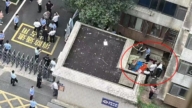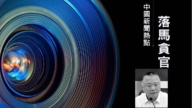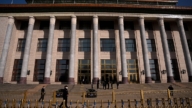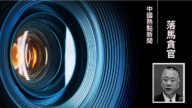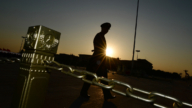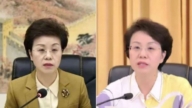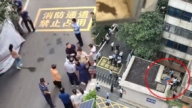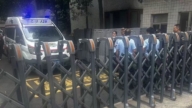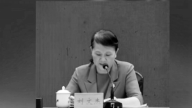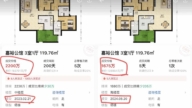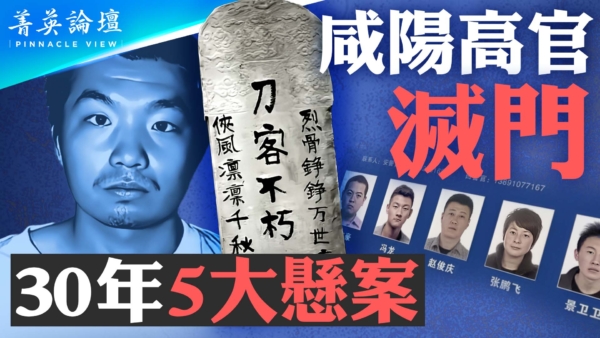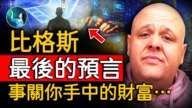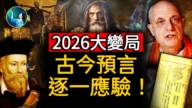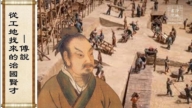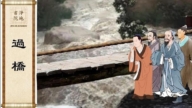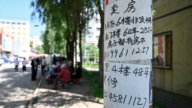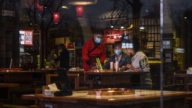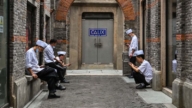【新唐人2013年03月02日訊】中共兩會召開前夕,中國敢言雜誌《炎黃春秋》,在北京舉行一年一度的新春聯誼會,有近200人出席活動。會中,來賓輪流發言,部分中外媒體刊登精彩演講內容。已故前中共總書記胡耀邦的兩個兒子胡德平、胡德華在會上,點出了中共的難題。
《炎黃春秋》總編輯吳思,2月28號主持了雜誌社的新春聯誼會。
據報導,與會者慷慨發言,包括96歲的中共元老李銳、90歲的原新聞出版署署長杜導正、82歲的老軍醫蔣彥永等。
而已故前中共總書記胡耀邦的兩個兒子胡德平、胡德華也聯袂出席。胡德平指出,公民維權和腐敗官員之間的矛盾,是目前中國社會主要矛盾之一。胡德華以蘇聯共產黨垮臺,評論中共面對的問題,他引述俄羅斯共產黨總書記久加諾夫的話說,蘇共垮臺是由於蘇共壟斷了一切資源,壟斷了真理。
學者錢理群在會上呼籲,如今,壞人已經聯合起來,他們做盡壞事,好人也要聯合起來,做幾件推動政治體制改革的好事。法學家江平提出:要按照憲法理念治國。
《炎黃春秋》1991年創刊,是一本綜合中文月刊。文章作者以中共黨內元老、作家與學者為主,力求還原歷史真相。由於文章內容不時與官方的歷史結論出入,或者主張黨內各項改革,而受到中共當局的關注。
北京時政觀察人士華頗向《新唐人》表示,中共再像以前那樣光說不做肯定會出大事。
北京時政觀察人士華頗:「中共已經到了生死存亡的關頭,這一點來講,左中右三派都已經達成了一種共識。習的改革來講,那就是,只要中共能夠執政,怎麼改都可以!他內部講話有一條就是不作中國的戈爾巴喬夫!真實的意圖就是,他不會作末代皇帝。他要不作末代皇帝,肯定要進行一些深層次的改革,但是要一個前提,那就是保持中共的執政地位。」
華頗表示,中共的憲法一方面強調了黨權,一方面也有保護民權的一些條款,如:公民有遊行、集會、言論、結社、出版的自由。但問題出在黨權的無限擴大,擠壓了民權的空間。
華頗:「強者是不願講民主的,所以中共在執政以後,沒幾年就拋棄了所謂的多黨合作,把共同綱領就扔進了廢紙堆,就實行了一黨專政,後來形成了毛澤東的一人專制,他是以一人統治全黨,以一黨統治全國,所以對於統治者來說,不願意自己的權力受到任何制約。」
《炎黃春秋》聯誼會上,前中宣部理論局局長鍾沛璋說:1949年,毛澤東宣佈中國人民站起來了!事實上,是毛澤東一個人站起來,億萬中國人民跪下去了。
前中共中央農村政策研究室研究員姚監復希望:中國真正的和諧。
前中共中央農村政策研究室研究員姚監腹:「像我本人,我說了點話,就警告我不准接受外國記者採訪,不要寫政治文章,不要出國參加政治性活動。據我知道,好像鮑彤接見了美國之音記者以後,上面好像有人警告他不准再接見。他既然是公民,那他應該有發言權。還有辛子陵,一個退休的軍隊裡的大校,戳了一下曾慶紅的兒子買了豪宅,就限制他的人身自由,兩年了不准他出國防大學大門。」
2005年11月,中共在六四事件後,首度公開紀念胡耀邦誕辰90週年,《炎黃春秋》配合官方刊載了「我們心中的胡耀邦」專題,但是後來被中宣部批評,當期雜誌短暫被封禁。
2009年5月22號起,《炎黃春秋》網站(yhcqw.com)開始無法訪問,據推測,可能與「六四事件二十週年」臨近有關。
2013年第一期的《炎黃春秋》,發表了新年獻詞——《憲法是政治體制改革的共識》,呼籲當局將虛置的憲法變成現實的制度體系。1月4號《炎黃春秋》網站再被關閉。1月5號,雜誌使用了一個臨時網站,暫時恢復上線。
採訪/易如 編輯/周平 後製/蕭宇
Outspoken Journal Yanhuang Chunqiu Holds Annual Gathering
An outspoken magazine Yanhuang Chunqiu recently
held its annual New Year gathering in Beijing.
About 200 people attended the event.
Some Chinese and foreign media have reproduced
brilliant speeches given by the attendees.
Two sons of Hu Yaobang, the late Chinese Communist
Party General Secretary, commented on the problem that challenges the regime.
On February 28, the New Year gathering was chaired
by Wu Si, chief editor of Yanhuang Chunqiu.
Reportedly, the attendees were actively giving
speeches at the gathering.
They included Li Rui, 96-year-old CCP veteran;
Du Daozheng, 90-year-old former Press & Publication chief;
Jiang Yanyong, 82-year-old former army doctor.
Hu Deping and Hu Dehua, two sons of late CCP ex-General
Secretary Hu Yaobang, were also present.
Hu Deping said that one of the major social conflicts in China
is the one between civil rights defense and official corruption.
He took the collapse of the Soviet Union Communist Party(CPSU)
as an example to comment on the problem the CCP faces.
Also, he cited Gennady Zyuganov, secretary of
Communist Party of the Russian Federation:
“The CPSU’s monopoly of all resources and of
the truth led to its collapse.”
Qian Liqun, a scholar present, said that
“Today, villains have united to do evil.
So moral people should also combine their efforts to
support political reforms.”
Jurist Jiang Ping put forth “governing by the constitution.”
Founded in 1991, Yanhuang Chunqiu
is a comprehensive monthly journal.
It is committed to restoring the historical truth,
it’s contributors are mainly CCP veterans, writers and scholars.
The articles often disagree with official conclusions,
and advocate the carrying out of reforms within the Party.
Therefore, the magazine has been
under the regime’s surveillance.
Political observer Hua Po forecasts that the CCP will
get into big trouble if it continues to talk without following up with action.
Hua Po: “Now the CCP faces a life and death situation,
which is a consensus reached among its factions.
Xi would like to carry out any reform on condition that
the CCP rule remains.
In an internal meeting, he said that he wouldn’t behave
as if he were China’s Gorbachev!
That means he doesn’t want to be the last CCP ruler.
He’ll certainly stage some deep reforms,
but they will be used to maintain the CCP’s rule.”
Hua Po interprets that China’s constitution highlights
the authority of the CCP.
It also covers some aspects of protecting civil rights.
Such as citizens have freedom of demonstration,
assembly, expression, of association and of publishing.
The problem is, the Party’s authority has gone unchecked,
and has taken the space of civil rights.
Hua Po: “The strong won’t follow democracy.
So after the CCP came to power in China, it soon discarded
the proposed multi-party cooperation.
It then began one-party dictatorship, which later evolved
into Mao Zedong’s individual tyranny.
Mao ruled the CCP, and the CCP rules the whole country.
So the ruler wouldn’t want his power to be constrained.”
At the gathering, Zhong Peizhang, former news bureau chief
of the CCP Central Propaganda Department, commented.
He said, “In 1949, Mao Zedong declared that
the Chinese people have stood up!
Yet in reality, it was Mao himself who stood up, while
hundreds of millions of Chinese people knelt down.”
Yao Jianfu, former researcher at CCP central rural policy
research office, hopes to see real social harmony in China.
Yao Jianfu: “As for myself, I just made some comments.
And so I got a warning and was banned from interviews with
foreign media, from writing comments on politics, and from participating in overseas political activities.
After a VOA’s interview with Bao Tong,
the central authorities forbade him to do more.
As a citizen, he should have freedom of speech.
There was also Xin Ziling, a retired army colonel.
He criticized Zeng Qinghong’s son buying a mansion,
So his personal freedom has been restricted for the past two years.”
In November 2005, the CCP, for the first time after
the June 4 Massacre, openly commemorated the 90th anniversary of the birth of Hu Yaobang.
The Yanhuang Chunqiu echoed the authorities by
publishing special reports on Hu Yaobang.
Later, it was criticized by the CCP Central Propaganda Dept.
The issue of Hu Yaobang was again
banned for a short period.
In May 2009, the journal’s official website Ycqw.com
was blocked. Speculation was that
it was related to the 20th anniversary of the
June 4th pro-democracy movement.
The journal published its 2013 New Year message,
titled “Constitution is the Consensus for Political Reform".
The article called for putting constitution into practice.
On January 4, its official website was blocked again.
The magazine had to resort to a makeshift website to
provide a service the next day.


